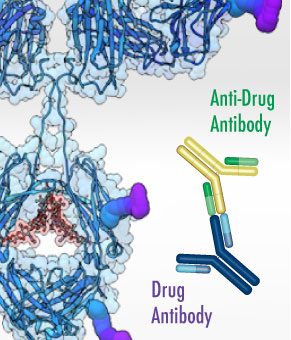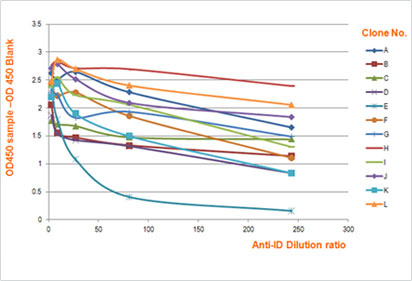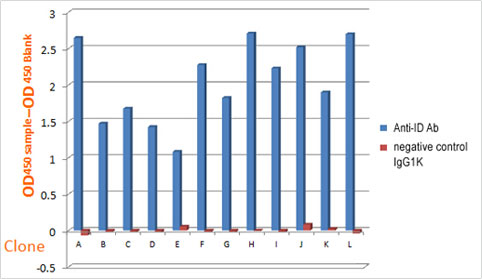
Anti-Drug Antibody (ADA) Service

All biopharmaceuticals are immunogenic and may induce anti-drug antibodies (ADAs). The clinical effects of ADA formation can be highly variable and may cause severe adverse events that put the patient at risk. When designed correctly, high affinity ADAs can be ideal for use in pharmacokinetic bridging ELISAs and as reference standards in ADA assays. It is therefore imperative to develop ADAs with the appropriate sensitivity, specificity, and selectivity to guide biotherapeutic drug development decision-making.
Abcepta provides a fast and customer-oriented custom ADA generation service to support the clinical development of biotherapeutic drugs. Our approach is to first evaluate the customer's most critical factors for each individual project, and then present tailored protocols and project management for approval. Allow Abcepta to be a part of your team!
Order Information:
Email:
USA: sales@abcepta.com
Phone:
USA: 888.735.7227 (toll free) or 858.875.1900
Fax:
USA: 858-875-1999
in the development of anti-drug antibodies, including development of anti-idiotype antibodies.


of negative controls (HuIgG1k) is 1 ug/mI
(Data from customer)
idiotype Ab, but not other negative controls (HuIgG1k).














 Foundational characteristics of cancer include proliferation, angiogenesis, migration, evasion of apoptosis, and cellular immortality. Find key markers for these cellular processes and antibodies to detect them.
Foundational characteristics of cancer include proliferation, angiogenesis, migration, evasion of apoptosis, and cellular immortality. Find key markers for these cellular processes and antibodies to detect them. The SUMOplot™ Analysis Program predicts and scores sumoylation sites in your protein. SUMOylation is a post-translational modification involved in various cellular processes, such as nuclear-cytosolic transport, transcriptional regulation, apoptosis, protein stability, response to stress, and progression through the cell cycle.
The SUMOplot™ Analysis Program predicts and scores sumoylation sites in your protein. SUMOylation is a post-translational modification involved in various cellular processes, such as nuclear-cytosolic transport, transcriptional regulation, apoptosis, protein stability, response to stress, and progression through the cell cycle. The Autophagy Receptor Motif Plotter predicts and scores autophagy receptor binding sites in your protein. Identifying proteins connected to this pathway is critical to understanding the role of autophagy in physiological as well as pathological processes such as development, differentiation, neurodegenerative diseases, stress, infection, and cancer.
The Autophagy Receptor Motif Plotter predicts and scores autophagy receptor binding sites in your protein. Identifying proteins connected to this pathway is critical to understanding the role of autophagy in physiological as well as pathological processes such as development, differentiation, neurodegenerative diseases, stress, infection, and cancer.